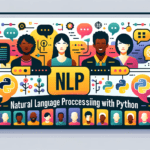The advent of Enterprise Generative AI (GenAI) systems is transforming the way organizations operate, offering scalable solutions without the need for constant human oversight. However, this shift necessitates a new mindset among business leaders and data professionals. As AI becomes an integral part of business operations, leaders must rethink their challenges and adapt their strategies to leverage the full potential of AI. This new era requires robust data science and a reevaluation of roles within organizations to ensure successful AI implementation at scale.
Resilient Data Teams in the Age of AI
The fear that data scientists will be automated out of their jobs is unfounded. Instead, data scientists must redefine their roles based on the core principles of their discipline rather than specific tools, which are constantly evolving. The essence of data science lies in precise thinking and problem-solving, skills that remain invaluable despite advancements in AI technologies.

Adapting to Changing Tools and Technologies
Data scientists should identify with the fundamental functions of their role rather than the tools they use. Just as a modern-day data scientist wouldn’t define themselves by punch cards, they should not be constrained by current tools like Python. The core competencies of data science—analytical thinking, problem-solving, and precise communication—remain relevant regardless of the tools employed.
Evolving Roles and Skills for AI Integration
AI’s integration into business processes requires a holistic approach to team building, from leadership to entry-level positions. The following outlines the evolving roles and essential skills needed to maximize AI’s potential in organizations:
Focusing on People Skills and Rules
Business leaders must excel in understanding the problems they aim to solve and selecting the appropriate tools and teams. Decision-making skills are critical, as leaders must determine what success looks like, which mistakes are tolerable, and how to ensure trustworthy safety nets. Regulatory compliance is also crucial, requiring an auditable system of record for decisions that determine system parameters during AI design and deployment.
Key areas for regulatory consideration include:
- Data provenance and nature
- Success and failure criteria
- Launch test specifications
- User group considerations (e.g., adults vs. children)
Governments are unlikely to allow a repeat of the unregulated growth seen in previous tech waves. Companies must be prepared to maintain records and comply with regulations to avoid unintended consequences.
Data Experts: Careful Thinkers Needed
Contrary to concerns that AI will eliminate the need for coding skills, precise thinking and instruction remain fundamental. Data scientists must view their role beyond mere coding, focusing on optimizing technical communication and translating business needs into data-driven solutions. The ability to work with domain experts and stakeholders ensures that data scientists tackle the right problems from the outset.
Data scientists’ precision thinking is essential for:
- Evaluating large-scale AI system performance
- Designing AI safety nets with real-time intervention and moderation
- Protecting organizational reputation in an AI-driven world
Integrating AI into Business Processes
Organizations must think strategically about how to integrate AI into their workflows. This involves understanding the unique capabilities of AI and aligning them with business objectives. Effective AI integration requires collaboration across various departments, including IT, operations, marketing, and customer service. Each department must understand how AI can enhance their processes and contribute to overall business goals.
Cross-Functional Collaboration
Successful AI integration hinges on cross-functional collaboration. Business leaders must foster a culture of collaboration where data scientists work closely with other departments to identify opportunities for AI implementation. This collaborative approach ensures that AI solutions address real business needs and deliver tangible benefits.
Continuous Learning and Adaptation
AI technologies are rapidly evolving, and organizations must be prepared to adapt. Continuous learning and upskilling are crucial for both data scientists and business leaders. Organizations should invest in training programs that keep their teams updated on the latest AI advancements and best practices. This proactive approach ensures that teams remain competitive and capable of leveraging AI effectively.
Ensuring Ethical AI Deployment
Ethical considerations are paramount in AI deployment. Organizations must ensure that their AI systems operate transparently and fairly, avoiding biases and unintended consequences. Ethical AI deployment involves:
- Regularly auditing AI systems for biases
- Ensuring transparency in AI decision-making processes
- Engaging diverse teams to mitigate bias and enhance fairness
Organizations must prioritize ethical considerations to build trust with stakeholders and avoid reputational damage.
Future Outlook: The Continued Relevance of Data Science
As AI systems become more prevalent, the demand for skilled data scientists will only increase. Data scientists’ ability to think deeply and analyze complex data sets is crucial for validating AI solutions. The role of data scientists will evolve, but their core skills in precision thinking and problem-solving will remain indispensable.
Expanding Access to Data Science Tools
There is growing interest in making data science tools accessible to a broader audience. Companies like DataRobot are developing tools that cater to both non-technical subject matter experts and highly skilled data scientists. This democratization of data science tools enables precise thinkers across the organization to contribute to AI-driven decision-making.
Conclusion
Organizations must adopt a new mindset to harness the full potential of AI. By building resilient data teams, fostering cross-functional collaboration, and prioritizing ethical AI deployment, businesses can leverage AI to achieve their strategic objectives. The precision thinking skills of data scientists will continue to be in high demand, ensuring that AI solutions are both effective and responsible. As AI technologies evolve, continuous learning and adaptation will be essential for organizations to stay competitive and maximize the benefits of AI.



